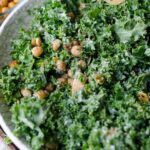You’ve probably heard and read about B vitamins, and you know they’re essential for your health and wellness. In fact, you might be feeling pretty low and sluggish and not realize that it could be because of a Vitamin B deficiency.
Here’s what you need to know about these essential nutrients and how to include them in a balanced diet.
What Are B Vitamins?
B Vitamins are water-soluble, and there are eight distinct B Vitamins in total. They are known by both a number and a name, so here’s a list of B Vitamins:
- Vitamin B1: Thiamine
- Vitamin B2: Riboflavin
- Vitamin B3: Niacin
- Vitamin B5: Pantothenic acid
- Vitamin B6: Pyridoxine
- Vitamin B7: Biotin
- Vitamin B9: Folate, or Folic acid
- Vitamin B12: Cobalamins
Until now, you might have thought that since there’s a “B12” vitamin, there must be 12 B vitamins, but as you can see, there are just eight. Usually, when you consume a food rich in one B vitamin, you’re probably consuming many other B vitamins, too.
What Do B Vitamins Do in the Body?
It’s impossible to cover everything these power-packed vitamins do for the body. But one thing we can say is that B Vitamins are essential for the body’s metabolic processes.
Therefore, Vitamin B1 helps your body derive energy from carbohydrates, and it also supports the body in making new cells.
Vitamin B2 helps you obtain energy from fatty acids and other molecules. It also helps in the production of red blood cells and fights against free radicals. Vitamin B3 helps your body get energy from sugar and fats. Vitamin B12 is necessary for metabolizing carbohydrates and proteins on a cellular level.
In short, B vitamins allow your body to metabolize carbohydrates, proteins, and fats so that you can obtain energy from them.
This is a very basic way to sum up these essential vitamins, but it’s a good starting point for understanding why they’re so important in your daily diet.
Vitamin B1
This B vitamin helps your body utilize the nutrients inside the proteins and carbohydrates you consume. It also helps keep your energy levels up and supports your digestive, cardiovascular, and endocrine systems.
You won’t feel very well if you’re deficient in these vitamins. Let’s look at three common B vitamins and what life is like without them.
Vitamin B1 Deficiency Symptoms
If you’re running low on Vitamin B1 (or Thiamine), you can experience any of the following symptoms:
- Weight loss and/or anorexia
- Chronic fatigue
- Muscle weakness
- Heart issues, including heart enlargement
- Psychosis
- Depression
- Confusion
- Nerve damage and inflammation
- Digestive issues, including diarrhea and colitis
Foods With Vitamin B1
If you are suffering from any of the above symptoms, consider eating more foods with Vitamin B1:
- Whole grains or whole grain products fortified with Vitamin B1
- Eggs
- Beans
- Nuts
- Peas, tomatoes, and spinach contain low levels of Vitamin B1, too
Vitamin B6
Having enough Vitamin B6 is crucial to your physical and psychological health, and that includes things like metabolism, brain and nerve function, energy levels, and the health of your skin and eyes, too.
It’s unusual for people consuming the typical Western diet to become deficient in Vitamin B6 (or pyridoxine), but depending on your own personal dietary choices, it is possible.
If you’re experiencing any of these symptoms, there’s a chance that it’s because you don’t have enough Vitamin B6 in your diet:
- Psychological issues, including depression, anxiety, irritability, or experiencing confusion
- Muscle pain and weakness
- Low energy levels
- Difficult PMS symptoms
- Increase in anemic symptoms
Foods With Vitamin B6
Vitamin B6 can be found in many delicious foods, many of which you may be already consuming. Here are some of the best foods with Vitamin B6:
- Avocado
- Potatoes
- Chickpeas
- Pinto Beans
- Sesame and sunflower seeds
- Pistachio nuts
- Amaranth
- Chicken and turkey breast
- Beef
- Organ meats
- Fish, including tuna
Vitamin B12
Vitamin B12 deficiency is a worldwide problem and a big problem in North, Central, and South America.
This is very problematic since Vitamin B12 (or Cobalamin) supports healthy brain and cardiovascular functions, digestive and nervous systems, and so much more.
The chances of you having a Vitamin B12 deficiency are pretty high. Do you suffer from any of the following symptoms? If so, you might consider increasing the Vitamin B12 in your diet.
- Chronic fatigue and feeling burnt out
- Weakness and aching muscles
- Depression
- Memory and concentration problems
- Stress
- Compromised cognitive functions
- Increased chance of heart disease
- Anemia
Foods With Vitamin B12
As you can see, having a Vitamin B12 deficiency can lead to serious health problems. Therefore, it’s important to keep your diet rich in Vitamin B12 sources. A good rule of thumb is to consume animal foods.
If you’re a vegan, it’s recommended that you consume Vitamin B12 fortified foods and/or a reliable supplement to prevent a Vitamin B12 deficiency. Some of the foods high in Vitamin B12 include the following:
- Dairy products, like yogurt, cheese, raw milk
- Eggs
- Grass-fed meats, such as beef, lamb and organ meats
- Poultry meats, including turkey and chicken
- Fish, including tuna, salmon, sardines, mackerel, shellfish, clams, trout, and herring
- Fortified plant sources, including yeast, grain products
- Sea vegetables, such as algae
Is Too Much Vitamin B Bad for You?
If you’re eating a balanced diet, it’s unlikely that you’ll consume too many B Vitamins. As we’ve learned, people are more likely not to get enough Vitamin B in their diets.
That said, if you consume too many B vitamins in your diet, your body will usually eliminate any excess amounts to prevent toxic levels. This is possible since they are all water-soluble, like Vitamin C.
Now, if you rely on supplements, you can overdo it, and over time, this can lead to serious nerve damage or even kidney damage. Supplemental Vitamin B can also lead to skin problems and other physiological issues.
So, always check with your primary care physician before you begin taking any vitamins and allow them to monitor your vitamin levels to ensure you’re getting the optimal amount.
How Much Vitamin B Should You Consume Every Day?
The Food and Nutrition Board of the Institute of Medicine recommends the following amounts of each of the eight B vitamins for women ages 19 and above:
- Vitamin B1 (Thiamine): 1.1 mg per day
- Vitamin B2 (Riboflavin): 1.1 mg per day
- Vitamin B3 (Niacin): 14 mg per day
- Vitamin B5 (Pantothenic acid): 5 mg per day
- Vitamin B6 (Pyridoxine): 1.3 mg per day
- Vitamin B7 (Biotin): 30 mcg per day
- Vitamin B9 (Folic Acid): 400 mcg per day
- Vitamin B12 (Cobalamin): 2.4 mcg per day
B Vitamins should be part of your healthy and balanced diet. That way, you can support your body’s many processes and systems, and you’ll have enough energy to thrive.








